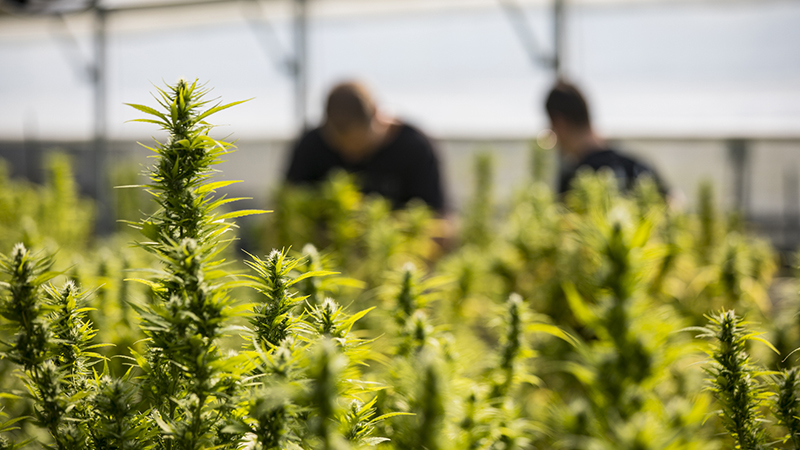Cannabis Science Degree
The Cannabis Science degree was designed to provide you with the flexibility to pursue most entry-level positions in the cannabis industry that utilizes the skills needed in science. Virginia-based companies often need employees that are broadly trained because of the vertical integration caused from state and federal law. This means if you understand how the plant grows, the history of laws, and the chemistry of cannabinoids, you can apply your cannabis science degree in numerous ways.

Cannabis Science Degree Requirements
Core Courses
CANN 110 Cannabis and Society
CANN 170 Cannabis and Its Regulation
PSYC 101 or HNRS/INQ 260 PY
PSYC 332 Drugs and Behavior
MATH 115
ELECTIVES in Cannabis Science*
BIOL 190 Exploring Unity of Life
BIOL 210 Cell Biology
BIOL 265 Plant Diversity
BIOL 315 Genetics
BIOL 365 Plant Anatomy and Physiology
CHEM 111 or CHEM 117 General Chemistry I
CHEM 112 or CHEM 118 General Chemistry II
CHEM 221 Organic Chemistry I
CHEM 222 Organic Chemistry II
CHEM 255 Qualitative Chemical Analysis (1/2)
CHEM 340 Pharmaceutical Chemistry
CHEM 350 Instrumental Analysis
CANN 115 Introduction to Horticulture
CANN 200 Cannabis and Pop Culture (1/2)
CANN 205 Cannabis and Race (1/2)
CANN 210 Cannabis and Disabilities (1/2)
CANN 250 Vegetable Growth
CANN 320 Seed to Shelf
INQ 250BI “ Insects and Cannabis” (only)
HNRS 251 Ethnobotany (only)
*NOTE: 300-level chemistry courses require completion of CHEM 222 with a C- or better. For students with competency in Biology or Chemistry courses listed above, the units in the major decrease by one per competency unit for the B.S. in Cannabis Science. Students must take at least 8 units from the list toward the BS. One unit may be made up of two 0.5-unit CANN courses.
Experiential Learning for Cannabis Science Majors
CANN 416 Internship
CANN 405, 406, 407 Independent Studies in Cannabis (1/2, 1. ½)
CANN 419, 420, 421 Research in Cannabis (1/2,1, ½)
CANN 495, 496, 497 Honors Project (1/2, 1, ½)